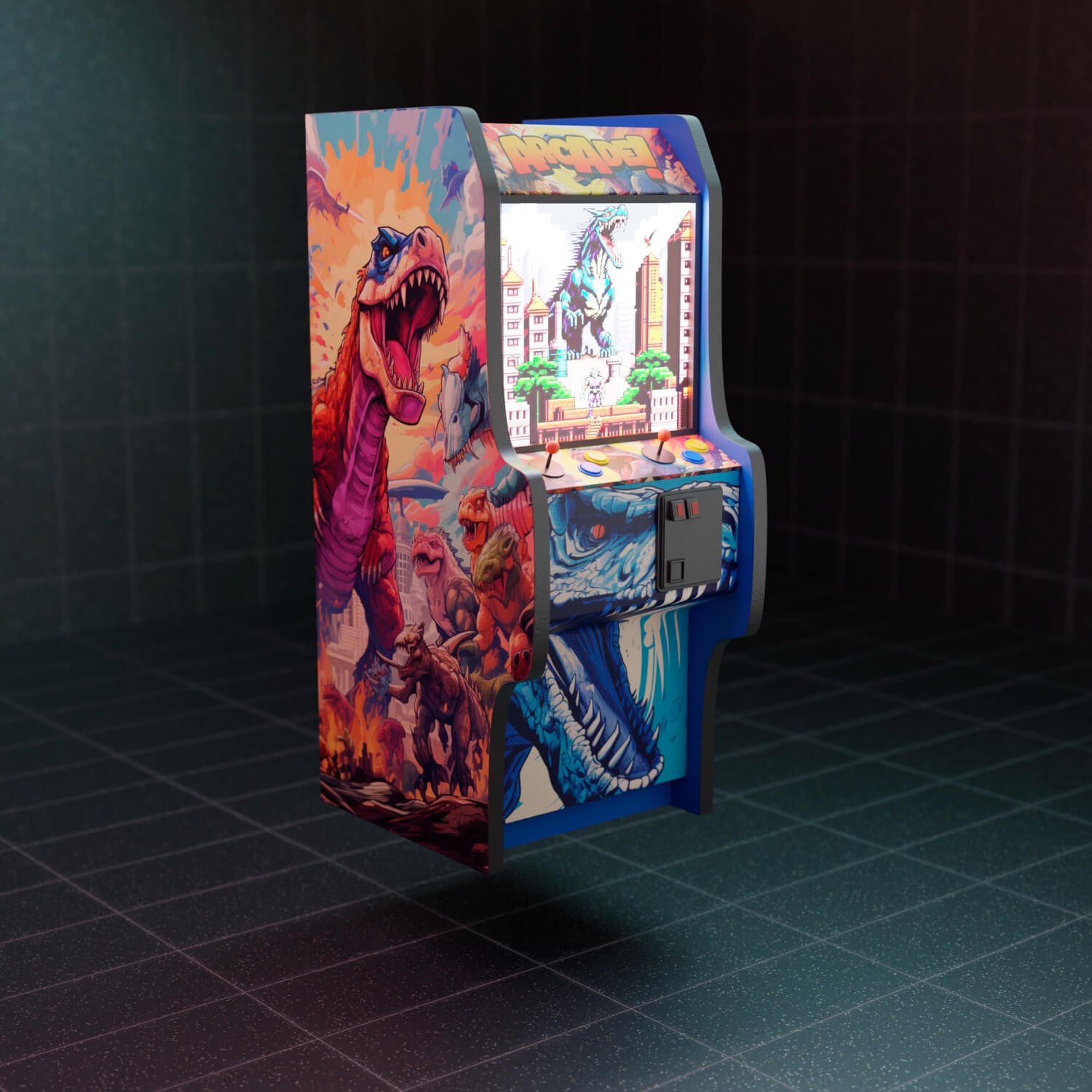Introduction
When Mortal Kombat exploded into arcades in 1992, it didn’t just offer another fighting game—it disrupted the arcade industry. Created by Ed Boon and John Tobias at Midway Games, the game’s digitized actors, brutal Fatalities, and dark fantasy atmosphere made it unlike anything that came before.
Not only did Mortal Kombat inspire a multimedia franchise, but it also became the catalyst for creating the ESRB rating system. Its cabinet wasn’t just a game—it was a cultural grenade.
Concept and Development
Originally envisioned as a martial arts title starring Jean-Claude Van Damme, the concept evolved into an original universe where martial arts met mythology.
Development Team
| Role | Name |
| Programmer | Ed Boon |
| Artist | John Tobias |
| Sound Designer | Dan Forden |
| Background Artist | John Vogel |
The use of digitized live actors gave Mortal Kombat a gritty, realistic look. Paired with fantasy elements and gore, it stood in stark contrast to the more colorful, cartoon-like competitors.
Gameplay Mechanics
On the surface, Mortal Kombat followed the 1v1 fighting format—but underneath, it broke new ground.
Key Features
| Feature | Description |
| Digitized Graphics | Real actors filmed and digitized frame-by-frame for gritty realism. |
| Fatalities | Secret inputs allowed over-the-top, gory finishers—its signature feature. |
| Block Button | Unlike others, used a dedicated button to block instead of pulling back. |
| Special Moves | Unique moves like Scorpion’s “Get over here!” spear and Sub-Zero’s ice blast. |
| Secrets | Hidden characters like Reptile and rumored Fatalities created an urban legend appeal. |
The combination of mechanical innovation and shock factor made the gameplay unforgettable.
Character Roster
The original Mortal Kombat featured seven playable fighters with diverse backstories:
| Character | Description |
| Liu Kang | Shaolin monk inspired by Bruce Lee. |
| Johnny Cage | Hollywood martial arts actor. |
| Raiden | Thunder god and protector of Earthrealm. |
| Sonya Blade | Special Forces colonel. |
| Kano | Mercenary and Black Dragon clan member. |
| Scorpion | Undead ninja seeking vengeance. |
| Sub-Zero | Cryomancer assassin with a hidden past. |
Non-playable bosses like Goro and Shang Tsung added challenge and mythology, while Reptile became one of gaming’s earliest secret characters.
Visual and Audio Design
Mortal Kombat’s aesthetic was gritty, atmospheric, and unforgettable.
- Stage designs like The Pit added cinematic flair (especially with death drops).
- Iconic voiceovers like “Finish Him!” and “Fatality!” became gaming staples.
- Dan Forden’s “Toasty!” Easter egg created a moment of levity amid brutality.
- Sound effects made every punch and rip feel visceral.
The game’s mature tone and audiovisual punch set it apart from its rivals.
Cultural Controversy
Mortal Kombat became the poster child for violent video games.
Key Events
- 1993 U.S. Senate Hearings: Sparked debates on violent content.
- Public Outcry: Parents and politicians demanded action.
- ESRB Formation: The Entertainment Software Rating Board was born as a direct result.
While censorship loomed, the backlash made Mortal Kombat more famous—and solidified its rebellious image.
Home Ports and Commercial Success
The arcade cabinet was a massive commercial hit—and its home console versions amplified the reach.
Home Versions
| Platform | Notable Feature |
| Sega Genesis | Blood & Fatalities available via cheat code. |
| SNES | Cleaner visuals, but no blood (heavily censored). |
| Game Boy/Game Gear | Simplified gameplay but carried the name. |
Despite the controversy, Mortal Kombat earned millions for Midway and sold millions of home copies.
Franchise Expansion
The original game launched a universe that continues into the 2020s:
| Title | Highlights |
| Mortal Kombat II (1993) | More characters, stages, and Fatalities. |
| Ultimate Mortal Kombat 3 (1995) | Introduced combos, cyborgs, and animalities. |
| Mortal Kombat 4 (1997) | Transitioned into 3D fighting. |
| Mortal Kombat 9–11 (2011–2019) | Reboots with rich story modes and online battles. |
| Mortal Kombat 1 (2023) | A full franchise reboot with next-gen visuals. |
The movies, comics, animation, and toys cemented Mortal Kombat’s place in pop culture.
Lasting Legacy
Mortal Kombat didn’t just redefine violence in gaming—it reshaped the entire industry.
Legacy Highlights
- Content Ratings Pioneer: Helped create ESRB.
- Mature Storytelling: Opened the door for adult narratives in games.
- Pop Culture Icon: Scorpion, Sub-Zero, and “Finish Him!” are now household names.
- Esports Impact: Built the early foundation for competitive fighting game scenes.
Today, Mortal Kombat arcade machines are prized as collector items, museum pieces, and functional art.
Conclusion
The Mortal Kombat arcade machine wasn’t just a game—it was a moment in history.
- It pushed boundaries of violence, realism, and controversy.
- It sparked new technologies, regulations, and storytelling standards.
- And it gave us a legacy of epic battles, iconic characters, and bone-crushing fatalities.
Even 30+ years later, few things are as chilling—and exciting—as the sound of:
“Finish Him!”
Bring Mortal Kombat to Your Space
Thinking of owning your own Mortal Kombat cabinet? We’re here to help!
🎮 Machines start from under £995 (VAT included)
🎨 Custom branding available with minimal cost
🛠️ Handcrafted by UK experts
About Bespoke Arcades
We are a UK-based manufacturer of custom-built, high-end arcade machines.
Our Models:
- Apex – Tall, upright arcade cabinet
- Synergy – Sleek sit-down design
- Evo – Combines modern and retro gaming
Whether you want classic brutality or modern battles, we can build the perfect Mortal Kombat arcade machine for your home, office, or venue.

